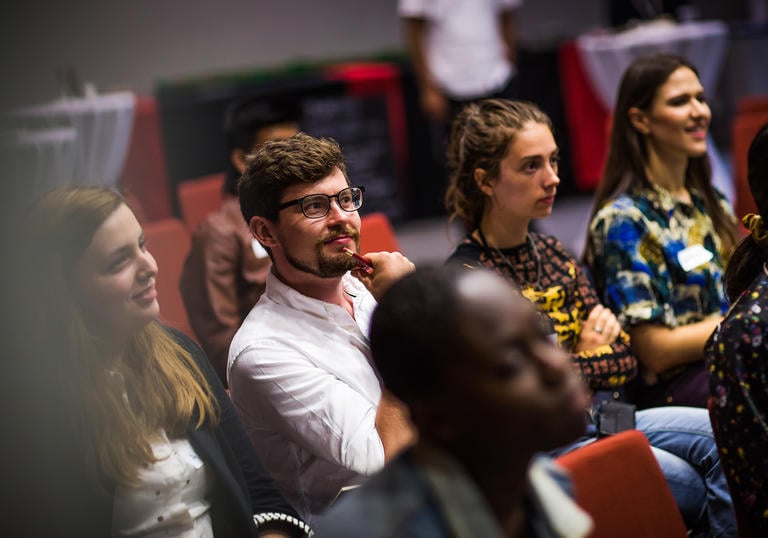It’s hard to know where to start when it comes to building your own arts business, whether as a vehicle for your work as a freelancer, as a means of collaborating with peers, or in order to access particular funding streams. We brought together three leading theatre and performance makers to talk about the nitty-gritty of forming a company, how to balance art and admin, and why it’s important to be able to fail.
Our panel are David Harradine, artistic director of performance company Fevered Sleep, Tim Cowbury, co-founder of theatre company Made in China, and Ed Errington, executive director at Fuel Theatre.
At what point in your career should you set up your company?
As time goes on, you realise there are things you need to do to support your creativity
It’s about constructing a platform to support your creativity, suggests David. Formalising that process in some way, by registering with Companies House perhaps, could have symbolic value. But it’s not necessary for everyone, said Tim – he and co-founder Jessica Latowicki have never felt the need to register Made In China as a company, for example. Setting up a company could also be a strategic move, added David, potentially leveraging more clout than if an artist were to go by their name alone.
How should emerging companies approach funding?
Learning how to navigate the funding landscape is absolutely part of the process of setting up a company
Ed recommends researching the opportunities available from Arts Council England (ACE) and exploring the possible benefits of setting up a charity when it comes to accessing additional funding streams. David underlined the importance of establishing and maintaining relationships with funders, since you’ll have to make a different case to each one. Staying true to yourself in the process as you go about that, it is about understanding the funding environment, so you know who to approach with what. The paid-for directory Trustfunding.org.uk is an essential tool.
What about failure…?
Getting things hideously, embarrassingly, publicly wrong is the only way sometimes that you can work out what you’re trying to do and who you are
For David, it’s a question of knowing when to accept failure and when to refuse it. It was only after Fevered Sleep took ACE to task for turning down a series of funding applications that the company was able to establish a relationship with the body, which then led to a successful application. For Ed, it’s about contextualising failure: box office figures or critical response aren’t the only means of judging the success of a project. Tim echoes this sentiment, recalling a Made In China show that may have appeared successful on the surface, yet felt like failure because the making process was beset with difficulties. David suggests defining what success looks like for you, and then judge your work according to your own criteria, not anyone else’s.
Where can I find ongoing training?
Every project forces or asks us to do things that we haven’t really done before
Staff at both Fevered Sleep and Fuel are actively engaged in their own career development, whether through courses, on-the-job training or mentoring. A much smaller organisation, Made In China doesn’t have a formal framework for training, but Tim and co-founder Jessica Latowicki must constantly be learning new skills to enable them to pursue new projects and cover all the bases of running a company with just two people. It’s important to be able to ask for help, added Ed, while David underlined the fact that mentoring doesn’t need to be hierarchical: peer mentoring can be just as valuable.
How do you find balance between earning a living and achieving your artistic ambitions?
Having an intimate knowledge of how your company works and where you want to be is really important – it gives you focus
Ed recommends writing a business plan as a way of setting out milestones and increasing the likelihood of longevity. As part of that, you have to embrace admin as a key aspect of creative practice. Artists can only make creative leaps if they have a solid base. Colleagues at Fevered Sleep take care of most of the admin, leaving David free to make art, he said, but he still has to think as a producer too, and make funding applications. Creativity is needed at all stages. Tim, meanwhile, commented that expansion is an option, not an obligation: pushing hard to grow a company and make it profitable can actually get in the way of being creative for some artists or companies.
Words by Jo Caird

